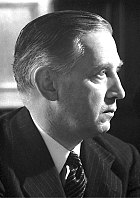| Institute of Physics Edward Appleton Medal & Prize | |
|---|---|
 The award is named in honour of Edward Appleton (1892–1965) | |
| Awarded for | Distinguished contributions to environmental, earth or atmospheric physics. |
| Sponsored by | Institute of Physics |
| Country | |
| Presented by | Institute of Physics |
| Formerly called | Chree Medal and Prize |
| Reward(s) | Silver medal, £1000 |
| First award | 1941 |
| Website | www |
The Edward Appleton Medal and Prize is awarded by the Institute of Physics for distinguished research in environmental, earth or atmospheric physics. Originally named after Charles Chree, [1] the British physicist and former President of the Physical Society of London, it was renamed in 2008 to commemorate Edward Victor Appleton, winner of the Nobel Prize for proving the existence of the ionosphere. [1]